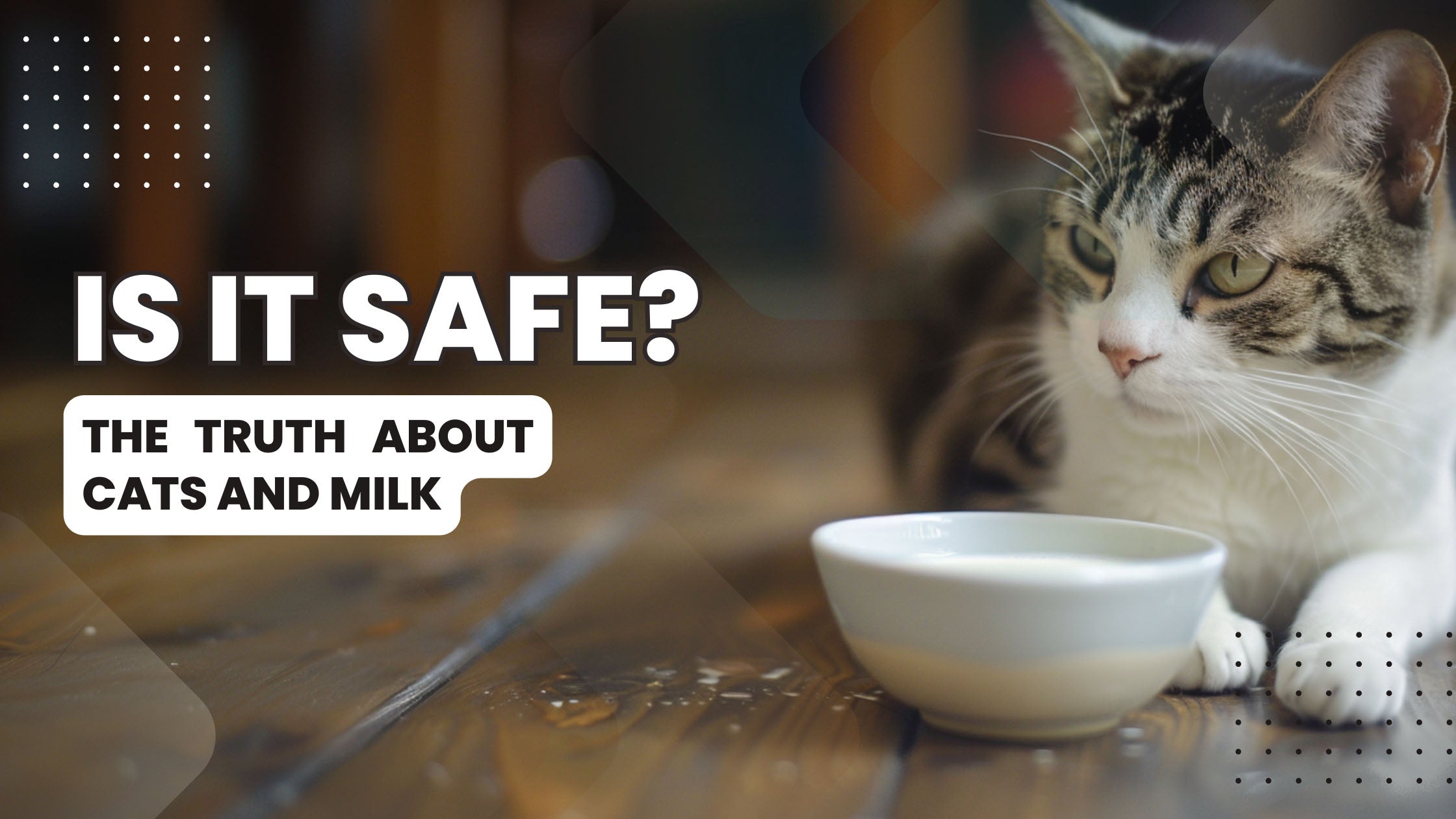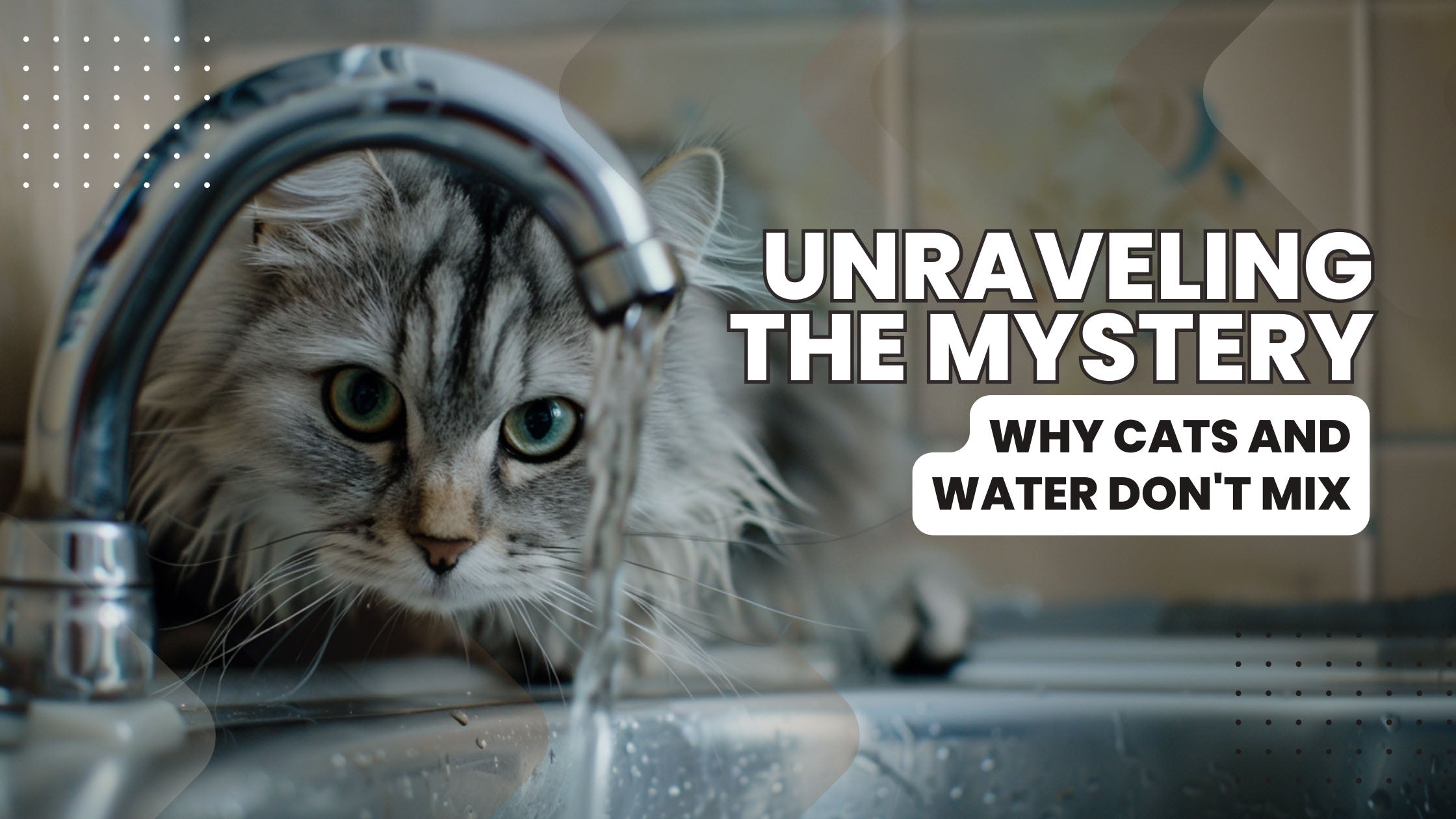
الحقيقة حول القطط والحليب: هل هو آمن؟
مقدمة

مرحبًا بكم في عالم الاحتياجات الغذائية للقطط المثير للاهتمام، مع التركيز بشكل خاص على السؤال الشائع: هل من الآمن للقطط شرب الحليب؟ على الرغم من الصور الشائعة للقطط وهي تلعق وعاءًا من الحليب بسعادة، فمن الأهمية بمكان تقشير طبقات هذا التصوير القديم للكشف عن الحقيقة التي تستند إلى علم الطب البيطري. بالنسبة لمالكي القطط، وخاصة أولئك الذين يعيشون في بيئة دبي الفريدة، فإن فهم ما يفيد صحة قطتك حقًا أمر بالغ الأهمية. لن يعالج هذا الاستكشاف حول ما إذا كان الحليب خيارًا مناسبًا للقطط الأساطير الشائعة فحسب، بل سيعزز أيضًا معرفتك بالتغذية السليمة للقطط.
فهم عملية الهضم عند القطط

علم الأحياء الأساسي للقطط
القطط، التي يعود نسبها إلى أسلاف برية، لها تركيبة بيولوجية مميزة تملي احتياجاتها الغذائية. وعلى عكس الحيوانات آكلة اللحوم مثل البشر، فإن القطط من آكلات اللحوم إجباريًا. وهذا يعني أن أجسامها مُجهزة بدقة للحصول على التغذية في المقام الأول من البروتينات الحيوانية. وقد زودها المسار التطوري للقطط بجهاز هضمي مُحسَّن لاستهلاك اللحوم، والذي يتضمن مستوى عالٍ من الحموضة في معدتها لتكسير البروتينات وقتل البكتيريا.
كيف تقوم القطط بمعالجة الأطعمة
نظرة عامة على الجهاز الهضمي
إن الجهاز الهضمي للقطط قصير نسبيًا مقارنة بالحيوانات آكلة اللحوم والنباتات. وذلك لأن البروتينات والدهون، التي تشكل المكونات الرئيسية لنظامها الغذائي الطبيعي، أسهل في الهضم من الكربوهيدرات. كما أن وقت العبور القصير في الجهاز الهضمي للقطط يسمح بامتصاص سريع لهذه العناصر الغذائية مع تقليل تحلل الكربوهيدرات غير الضرورية.
عدم تحمل اللاكتوز عند القطط
تنتج القطط الصغيرة إنزيمًا هضميًا يسمى اللاكتاز، والذي يساعدها على تكسير اللاكتوز الموجود في حليب أمهاتها. ومع ذلك، مع نموها وانتقالها إلى الأطعمة الصلبة، يتضاءل إنتاج اللاكتاز بشكل كبير، مما يؤدي غالبًا إلى عدم تحمل اللاكتوز. قد تعاني القطط البالغة التي تتناول الحليب من أعراض مثل الإسهال والانتفاخ وعدم الراحة بسبب عدم قدرتها على هضم اللاكتوز بشكل صحيح، وهو السكر الموجود في الحليب.
الحليب والقطط

أسطورة القطط والحليب
تُعَد صورة القطة التي تشرب الحليب بارتياح من العناصر الأساسية في الثقافة الشعبية، حيث نراها في كل شيء بدءًا من الرسوم المتحركة الكلاسيكية وحتى اللوحات القديمة. وينبع هذا التصوير من ملاحظات تاريخية حيث كانت القطط غالبًا ما تُرى في الحظائر وهي تشرب الحليب مباشرة من الأبقار. ورغم أن هذه المشاهد ترسم صورة غريبة، إلا أنها لا تعكس الواقع البيولوجي والغذائي للقطط المنزلية الحديثة.
المنظور التاريخي
في الماضي، وخاصة في المناطق الريفية، كانت القطط تتغذى عادة على بقايا الطعام البشري، بما في ذلك الحليب، لأنه كان متوفرًا بسهولة ويبدو أن الحيوانات تستمتع به. وقد أدت هذه الممارسة إلى الاعتقاد السائد بأن الحليب جزء طبيعي ومفيد من النظام الغذائي للقطط.
الصورة الإعلامية مقابل الواقع
لقد رسخت وسائل الإعلام فكرة أن الحليب هو طعام شهي تحبه القطط وتستفيد منه، لكن علم الطب البيطري يخبرنا بخلاف ذلك. الحقيقة هي أنه في حين قد تستمتع القطط بمذاق الحليب، فإن معظم القطط البالغة لا تمتلك ما يكفي من إنزيم اللاكتاز لهضم اللاكتوز بشكل صحيح، مما يؤدي إلى مشاكل هضمية مختلفة.
ماذا يحدث عندما تشرب القطط الحليب؟
التأثيرات الفورية
عندما تتناول قطة تعاني من عدم تحمل اللاكتوز الحليب، يمر اللاكتوز غير المهضوم عبر القناة المعوية، ويسحب معه الماء. وقد يؤدي هذا إلى الإسهال أو حتى القيء. وقد تظهر على بعض القطط علامات اضطراب المعدة، مثل الانتفاخ وعدم الراحة، بعد تناول الحليب بفترة وجيزة.
التأثيرات الصحية طويلة المدى
قد يؤدي تناول الحليب بانتظام إلى مشاكل صحية أكثر خطورة تتجاوز مجرد الانزعاج الهضمي. وقد تشمل هذه المشاكل اضطرابات الجهاز الهضمي المزمنة، وبسبب المحتوى العالي من السعرات الحرارية في الحليب، قد تؤدي السمنة. بمرور الوقت، قد تؤدي السمنة إلى مشاكل صحية خطيرة أخرى مثل مرض السكري ومشاكل المفاصل، مما يؤثر بشكل كبير على جودة حياة القطط.
بدائل صحية للحليب

السوائل الآمنة للقطط
أفضل السوائل وأكثرها ملاءمة للقطط هو الماء العادي. فالماء العذب النظيف لا يتجنب المخاطر المرتبطة بالحليب فحسب، بل يوفر أيضًا جميع احتياجاتها من الترطيب دون أي آثار صحية ضارة.
بدائل حليب الحيوانات الأليفة المعتمدة من قبل الأطباء البيطريين
بالنسبة للمالكين الذين يتطلعون إلى تقديم مكافأة تشبه الحليب، فهناك العديد من بدائل حليب الحيوانات الأليفة المتوفرة تجاريًا والتي تم تركيبها خصيصًا لتكون خالية من اللاكتوز وآمنة للقطط. توفر هذه المنتجات الملمس الكريمي الذي قد تستمتع به القطط دون اللاكتوز الذي يسبب مشاكل الجهاز الهضمي لديها.
مخاطر الحليب العادي
أعراض عدم تحمل اللاكتوز
يتمثل الخطر الأساسي الناتج عن إطعام القطط الحليب العادي في عدم تحمل اللاكتوز، والذي قد يتجلى في صورة عدم ارتياح في الجهاز الهضمي وإسهال وقيء. هذه الأعراض مزعجة لكل من القطة وصاحبها وقد تساهم في الجفاف.
احتمالية الإصابة بالسمنة ومشاكل صحية أخرى
يحتوي الحليب على نسبة عالية من الدهون والسكريات، والتي يمكن أن تساهم في زيادة السعرات الحرارية وتؤدي إلى السمنة لدى القطط. ونظرًا لصغر حجمها، فإن حتى الكميات الصغيرة من الأطعمة ذات السعرات الحرارية العالية مثل الحليب يمكن أن يكون لها تأثير كبير على صحتها العامة.
رعاية القطط في دبي

تكييف رعاية القطط لتتلاءم مع مناخ دبي
أهمية الترطيب
في مناخ دبي الجاف، يعد ضمان بقاء قطتك رطبة أمرًا بالغ الأهمية. لا تشرب القطط دائمًا كمية كافية من الماء، وقد تؤدي كفاءتها في الحفاظ على المياه في بعض الأحيان إلى الجفاف، خاصة إذا تم إطعامها طعامًا جافًا. يمكن أن يساعد توفير محطات مياه متعددة والتفكير في خيارات الطعام الرطب في الحفاظ على مستويات ترطيبها.
التعامل مع الحرارة
يمكن أن تؤثر درجات الحرارة المرتفعة في دبي على القطط، خاصة إذا تعرضت لأشعة الشمس المباشرة أو لم تتمكن من الوصول إلى بيئة باردة. من الضروري توفير مساحة باردة ومريحة لقططك ومراقبتها بحثًا عن علامات الإجهاد الحراري. تعرف على المزيد حول نصائح الترطيب للقطط في دبي .
الموارد المحلية لأصحاب القطط
توفر دبي مجموعة متنوعة من الموارد لأصحاب القطط لضمان حصول حيواناتهم الأليفة على أفضل رعاية ممكنة.
خدمات كاتمر المميزة
في كاتمر، نقدم خطط اشتراك متخصصة تلبي الاحتياجات الفريدة للقطط في دبي، مما يضمن حصولهم على نظام غذائي متوازن يتناسب مع المناخ المحلي ومتطلباتهم الصحية المحددة.
العيادات البيطرية المحلية ومستشفيات الحيوانات الأليفة
تُعد دبي موطنًا للعديد من الخدمات البيطرية عالية الجودة التي يمكنها تقديم الرعاية الطبية والفحوصات الروتينية للحفاظ على صحة أصدقائك القطط. يُنصح بالاستعانة بطبيب بيطري منتظم تثق به ويعلم التاريخ الطبي لقطتك.
دمج المعرفة الجديدة في رعاية القطط

الموارد التعليمية لأصحاب القطط
لدعم أصحاب القطط بشكل أكبر، تقدم Catmer مجموعة كبيرة من المعلومات من خلال منشورات مدونتنا وإرشاداتنا ، والتي تغطي مجموعة واسعة من المواضيع من رعاية القطط الأساسية إلى القضايا الطبية الأكثر عمقًا.
اتخاذ خيارات غذائية مستنيرة
يعد اختيار الطعام المناسب لقطتك أمرًا بالغ الأهمية لصحتها ورفاهيتها. في كاتمر، نقدم دليلًا شاملاً لاختيار طعام القطط المناسب في دبي ، مما يساعدك على اتخاذ قرارات مستنيرة تدعم الاحتياجات الغذائية لقطتك.
خاتمة

وقد كشف هذا البحث في مدى ملاءمة الحليب للقطط عن العديد من الرؤى الرئيسية. وفي حين أن النظرة التقليدية إلى القطط باعتبارها تستمتع بالحليب هي السائدة، فإن فهم الآثار البيولوجية والصحية يكشف عن قصة مختلفة. ومن المهم لأصحاب القطط أن يدركوا المخاطر المحتملة المرتبطة بتقديم الحليب لحيواناتهم الأليفة وأن يفكروا في بدائل أكثر صحة.
نحن نشجع جميع أصحاب الحيوانات الأليفة على استشارة طبيب بيطري لمناقشة أي تغييرات أو مخاوف في النظام الغذائي، والتأكد من أن القرارات الصحية التي يتخذونها هي في مصلحة رفاقهم القطط.
الأسئلة الشائعة
-
هل من الآمن لقطتي شرب الحليب؟
- تعاني معظم القطط البالغة من عدم تحمل اللاكتوز ولا ينبغي إطعامها حليب البقر العادي. يمكن أن يؤدي ذلك إلى اضطراب في الجهاز الهضمي ومشاكل صحية أخرى.
-
ما هي أعراض عدم تحمل اللاكتوز عند القطط؟
- قد تشمل الأعراض الإسهال والقيء وآلام البطن. إذا لاحظت هذه العلامات بعد أن تتناول قطتك الحليب، فمن الأفضل إزالة الحليب من نظامها الغذائي.
-
هل هناك أي بدائل الحليب آمنة للقطط؟
- نعم، تتوفر منتجات حليب القطط الخالية من اللاكتوز والتي تم تركيبها خصيصًا للاستهلاك من قبل القطط.
-
كيف يمكنني التأكد من بقاء قطتي رطبة في ظل حرارة دبي؟
- توفير إمكانية الوصول المستمر إلى المياه العذبة، والنظر في تقديم الطعام الرطب، وخلق بيئة باردة ومريحة.
-
ماذا يجب أن أفعل إذا كنت أعتقد أن قطتي تعاني من الجفاف؟
- إذا كنت تشك في إصابة قطتك بالجفاف، شجعها على شرب الماء واستشر الطبيب البيطري على الفور. قد تشمل علامات الجفاف الخمول وجفاف اللثة وانخفاض مرونة الجلد.

